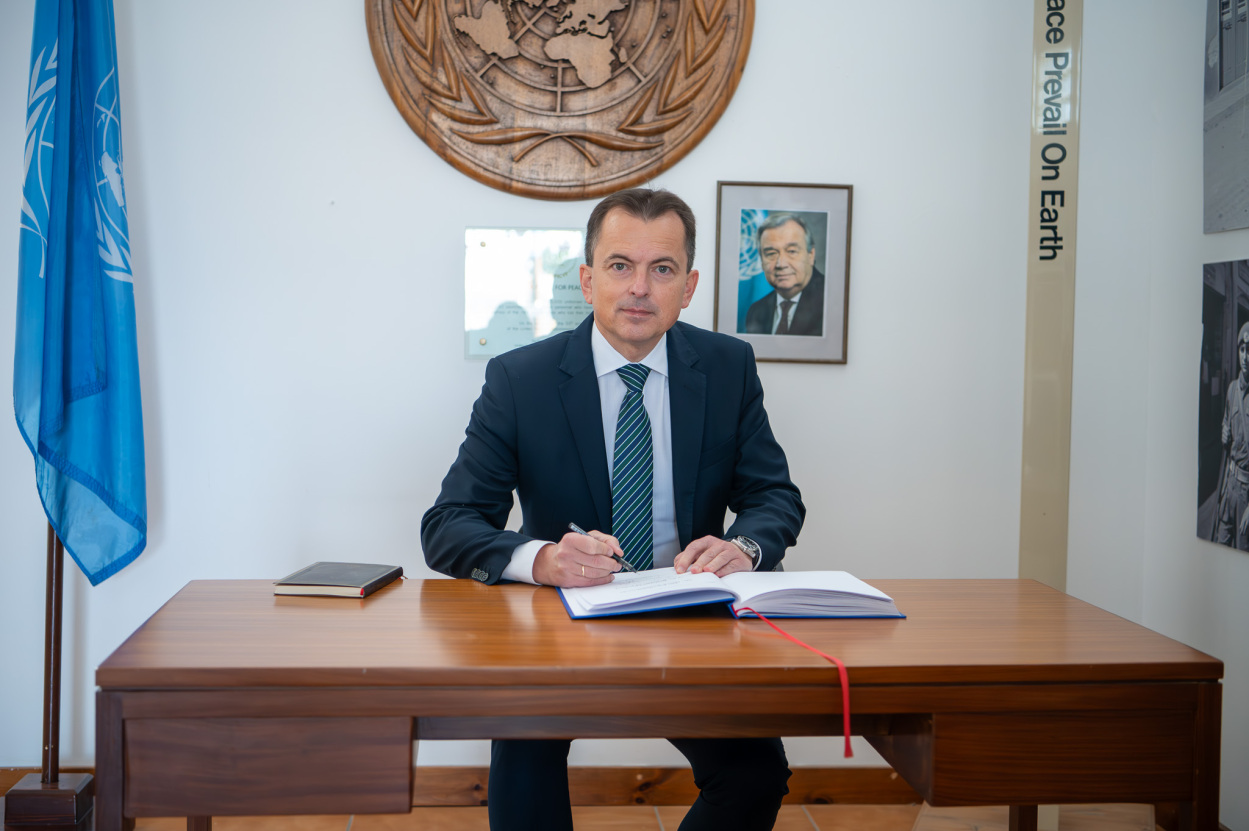By Tom Cleaver
Poland’s “primary mission” as it takes on the European Council’s rotating presidency is to “unite all 27 European Union member states around the common goal of ensuring that Europe remains the safest and most stable region in the world”, the country’s ambassador in Nicosia Marek Szczepanowski said on Saturday.
Speaking to the Cyprus News Agency, he said the fact that Poland’s presidency of the European Council coincides with the taking of office of the new European Commission “provides an opportunity to set goals, propose solutions, and launch processes for the next five years”,
On the other hand, he said, “it also begins at a very complex moment with unprecedented challenges and geopolitical pressures”.
These challenges, he said, include “Russia’s aggression against Ukraine and the dramatic situation in the Middle East”, as well as combating disinformation and dealing with flows of migration.
“The Polish presidency will support activities which strengthen European security in many dimensions – external, internal, information, economic, energy, food, and health,” he added.
With this in mind, he said Poland’s presidency of the European Council will “continue to work on the quality of EU enlargement”, with no new member states having been inducted into the bloc since Croatia in 2013 – the longest period in EU history with no new member states acceding in over five decades.
Additionally, he said, Poland’s presidency will focus on “deepening cooperation between the EU and Nato and transatlantic relations”, while also “continuing to promote compliance with international law and respect for human rights”.
He also made reference to the “trio” of presidencies, together with Denmark in the latter half of this year and Cyprus in the first half of next year, which came into existence when the three countries submitted a joint working programme last month.
“The trio’s programme has been carefully designed around the goals of a strong and secure Europe, a prosperous and competitive Europe, and a free and democratic Europe,” he said.
He added that the “trio” is “an example of power and diversity within the European Union”.
“The cooperation between Poland and Cyprus in particular offers a unique perspective, as both countries bring valuable experiences shaped by their different geographical positions and historical contexts,” he said.
To this end, he said that the two countries, “despite being geographically distant, face many similar challenges arising from their proximity to conflict zones”.
“Poland borders Ukraine, where war is ongoing, with far-reaching consequences for the security of all of Europe. Cyprus is at the crossroads of Europe, the Middle East, and north Africa, where tensions linked to instability are developing,” he said.
For this reason, he said, both countries “deeply understand the importance of solidarity in addressing challenges related to security, migration, and border stability”.
“These common experiences bring our two countries closer together, underlining the need for a united Europe which is capable of responding effectively to external threats and supporting its neighbours in times of need,” he said.
He added that he is confident that Poland’s presidency of the European council will “not only advance the priorities of today, but will lay a solid foundation for the next presidencies, especially for Cyprus, which will complete the ‘trio’s’ cycle”.






Click here to change your cookie preferences